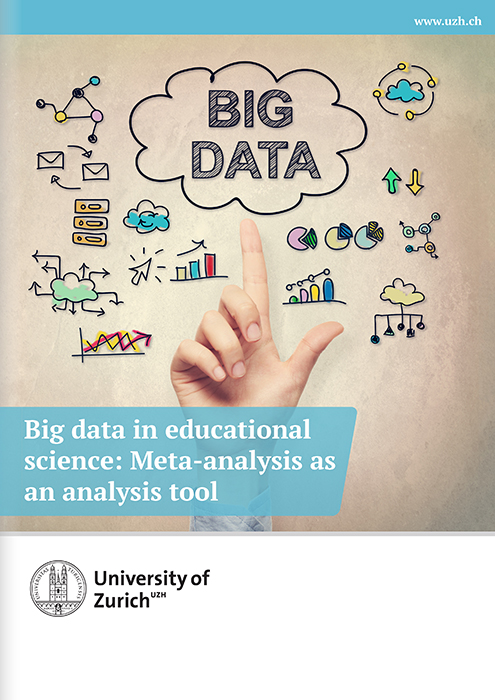Meta-analysis could be a solution for the analysis of big data, revealing research gaps. Esther Kaufmann and Professor Dr Katharina Maag Merki explain
In educational science especially, meta-analysis has been promoted and expanded since that time. Meta-analysis is defined as a simple statistical aggregation of different studies on the same subject, to reach an overall conclusion. The results of single studies suffer, for the example, from small sample sizes or inaccurate measures: these limitations are then overcome by meta-analysis.
The technology revolution through the introduction of computers and the internet has had a significant impact on science and analytic research. Since the beginning of the computer era, science databases have multiplied, and there is now more data available for analysis and interpretation. We now talk about the age of big data.
In this eBook we go into detail and argue that meta-analysis could be a solution for the analysis of big data in educational issues, allowing us to reveal research gaps. The guide interested readers, we take teachers’ judgement as an example. The eBook begins by describing the current state of teachers’ judgement achievement research of meta-analysis. It ends with an outlook for our current research projects in big data within the educational field.
Esther Kaufmann, PhD and Professor Dr Katharina Maag Merki show that meta-analysis is a useful tool to use to analyse big data in educational science and reveal research gaps that might prompt the initiative of new studies. Hence, as data production and storage will continue to increase in the future, meta-analysis as a research tool will fruitfully enrich educational science. However, our contribution also shows that we urgently need research on how to handle feedback or advice by research (meta-analysis) so that the practical transfer of science takes place within the educational setting.
If you are interested in our research- as a teacher, policy maker or a research hers – we welcome comment or inquiries and are happy to provide additional specific information.


